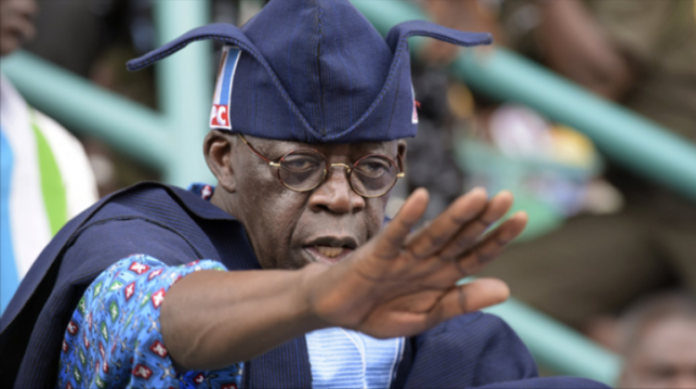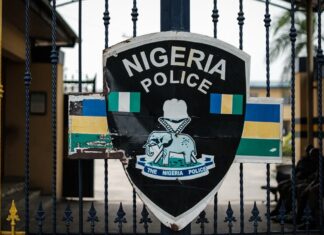By Emeka Alex Duru
The last time former Lagos State governor and All Progressives Congress (APC) National Leader, Ahmed Bola Tinubu, was drawn into major political battle, was in 2015. Then, the fledgling APC, put together by a fusion of the defunct Action Congress of Nigeria (ACN), All Nigeria Peoples Party (ANPP), Congress for Progressive Change (CPC), fragments of the All Progressives Grand Alliance (APGA) and breakaway faction of the Peoples Democratic Party (PDP), known as the New PDP (nPDP) had squared against the PDP that was in power in most states and the federal level.
Against the backdrop of the so-called power of incumbency that had made it difficult, if not impossible for an opposition political party to dislodge a ruling party in the country’s history, the agenda by the APC was easily dismissed in many quarters, as a huge joke. The initial assumption was that at some time in the evolution process of the APC, the chieftains, would fall apart. This tinge of pessimism drew strength from earlier attempts at coalition by the opposition back in the first republic that had not worked. Even in the current dispensation, the spirited attempts at forming the Conference of Nigerian Political Parties (CNPP), as a major platform for opposition political parties to wrest power from the PDP, had always collapsed when it mattered most.
The impression, therefore, was that the APC was going to crumble at a time. However, with the successful conclusion of its National Convention and election of General Muhammadu Buhari as its Presidential candidate, it became apparent that the opposition had put its house in order and was prepared, at least, for once, to give the ruling party, a huge fight. Tinubu, who came to the group with states under his ACN column – Lagos, Oyo, Osun, Edo, Ogun, easily stood out as the arrowhead of the arrangement. With a network of contacts that extended to other parts of the country, he galvanized the forces that dislodged the PDP-led Goodluck Jonathan administration. And Buhari was elected President. The victory song resonated in many states that were previously under the PDP. That particular feat remains a huge story in the Tinubu Phenomenon in Nigeria’s politics.
Apparently seeking a repeat of the heroic role and faced with a massively dwindled popularity profile on account of poor performance record, Buhari, has brought the former Lagos governor back on the frontline. While inaugurating the APC Campaign Council on Monday, January 7, Buhari was emphatic in announcing Tinubu as the face and engine room of his second term aspiration. To informed analysts, the announcement, seemed a subtle demotion of his campaign Director General (DG) and former Rivers State governor, Rotimi Amaechi. But for Buhari, what mattered most was getting the one that could do the job.
He said; “Asiwaju Bola Ahmed Tinubu, my co-chairman, will be fully in charge, and he is going to be on 24-hour vigil. That is to say, the operational buck of this campaign stops at his table, and, I therefore, urge all of us in the leadership of this campaign, in the field operations on the campaign trail and in the secretariat to consult with Asiwaju whenever guidance is needed.”
Tinubu and the task ahead
With this marching order, Tinubu instantly took charge of the campaigns. Though a seasoned hand in the intrigues of Nigerian politics and with lofty laurels to show for the efforts, it is not lost on Tinubu that the task at hand, is not going to be a tea party.
Marketing Buhari, this time around, is going to be a hard sale. In 2015, when he was packaged and sold to Nigerians, the president was presented as one that was going to reposition the country. His pledge of fixing the economy, tackling corruption, battling insecurity and confronting unemployment, easily sold him to Nigerians. Added to impression of an incorruptible officer that had characterised his earlier coming as military head of state in 1984, Buhari was wrapped in the garb of a messiah that Nigeria needed. But almost four years into his first term, some of his erstwhile followers, have been left in various levels of disappointment. Aside the allegations of incompetence, nepotism, haughtiness and selective prosecution of perceived opponents, there has been the charge of the president not fully attuned to workings of democracy. His awkward disposition to the legislature and judiciary, continues to rankle even his principled supporters. Thus, to those who presently see in the president, an opposite of what was offered to them four years ago, convincing them to give him another chance, may be hard.
That aside, cementing the various tendencies in APC, will also pose huge challenge to Tinubu. Incidentally, he is not entirely innocent of the disquiet in the party. His name, on occasions, props in some flashpoints in the party’s politics. Even in his South west, his hitherto larger-than-life image, is gradually shrinking. He is currently having a running battle with Ogun State governor, Ibikunle Amosun, over the control of the party structure in the state. His relationship with Ondo State governor, Rotimi Akeredolu, is at best, lukewarm. Some also insinuate that he is not entirely on good paths with Ekiti State governor, Kayode Fayemi. But what perhaps, pointed to the fact that his hold on South west politics, may soon give way, were the July governorship election in Ekiti and subsequent exercise in Osun, where the APC managed to run away with victories that are still in contention. These aside, outside the South West, Tinubu is essentially an ordinary politician. He is thus, more of a regional hegemon.
Weathering the Atiku factor
With such considerations, running over the PDP candidate, Atiku Abubakar, as Buhari, expects of Tinubu, may be a tall order. Atiku, for one, has more country-wide appeal, having operated at the national level, since his election as Vice President to former President Olusegun Obasanjo between 1999 and 2007. He had also run for the office of the president in 2007 and has been aspiring for the position, ever since. His party, the PDP, has also been very much uncomfortable, since its dislodgement from power by APC in 2015. Chieftains of the party, have, thus, vowed to return it to power this year, despite their own internal wrangling. The battle therefore promises to be consuming.
How far will Tinubu go?
What the former Lagos governor has going for him in his assignment, is the so-called federal might – a euphemism for appropriation of state apparatus to the advantage of the incumbent. The suspicion is that his agreement to take up the task given to him, is to worm himself into the president to enable him go for the presidency in 2023. But his acolytes are hardly excited by this. One of his foot soldiers in Lagos, who spoke to this Reporter, expressed serious doubts on the president keeping his words with Asiwaju, if he had promised him such. “Did you not see what happened shortly after the 2015 election when they sidelined him? Didn’t you see the attempts by even the president to put him on collision course with Vice President Yemi Osinbajo when he claimed that it was not him (Asiwaju) that nominated him (Osinbajo) for the post? I guess he should know better”, he remarked.
Tinubu’s wife, Senator Oluremi, had expressed similar misgiving at a time when Buhari asked him to lead the reconciliation process in the party. She had then alleged that her husband was “trashed” after the party won the 2015 elections.
She said; “He (Tinubu) was campaigning, I did too. We were running three campaigns in my house. And for him to be trashed like that? But I saw somebody who has love for this country.
“Occasionally, I would chip in and I would say, ‘You’re still helping out? Why are you helping out?’
TheNiche gathered that within the Tinubu political family, that hunch of their principal, being dumped at the end of the day, prevails. How the APC National Leader will rise above this suspicion and execute his tasking job, is another matter.














